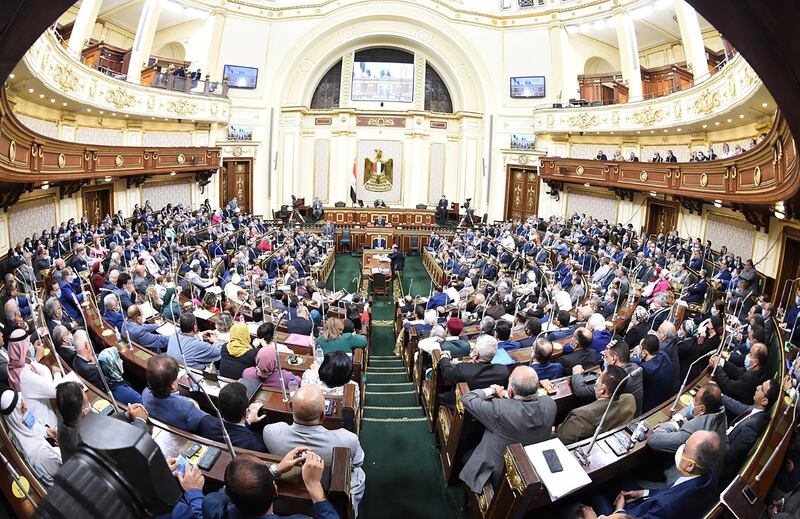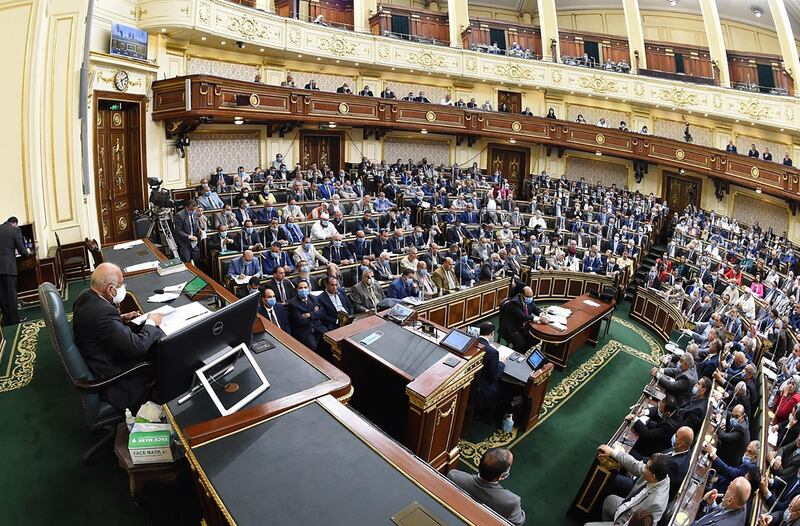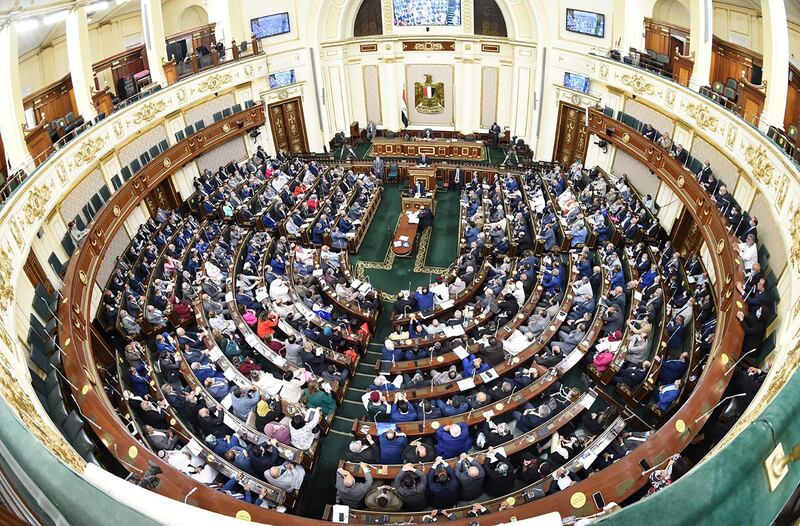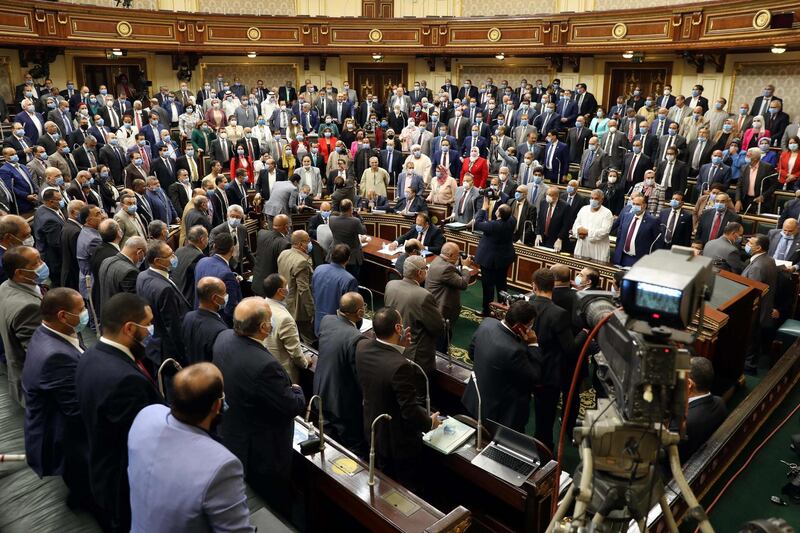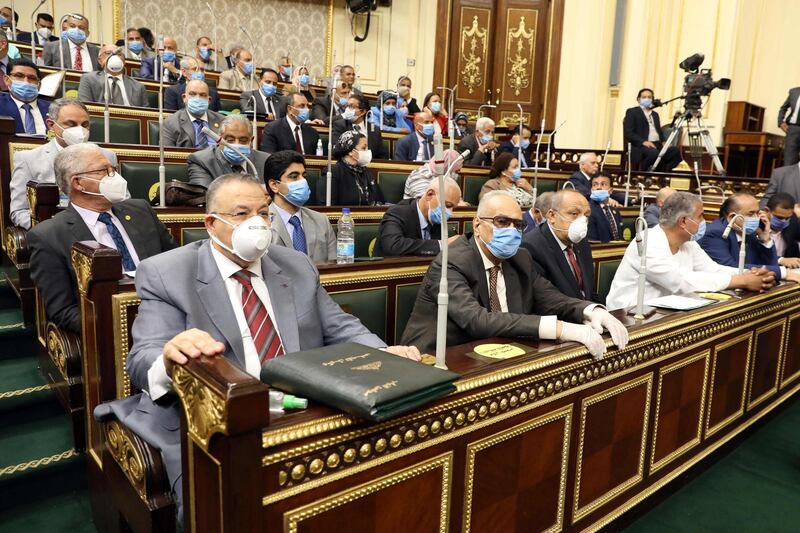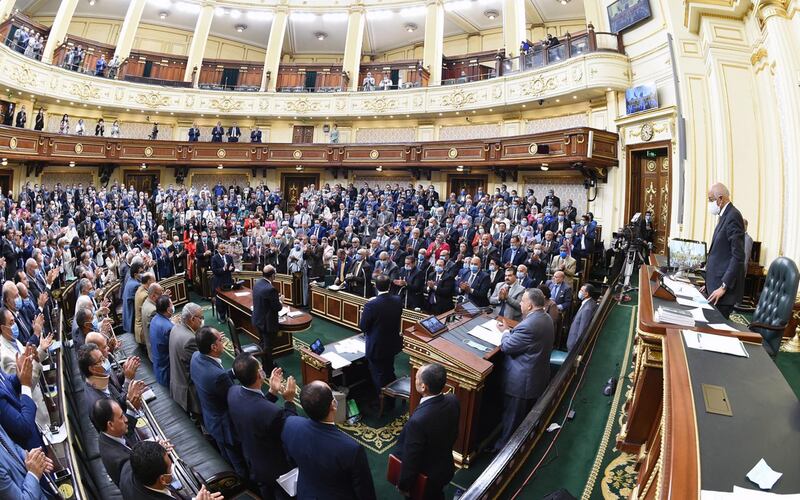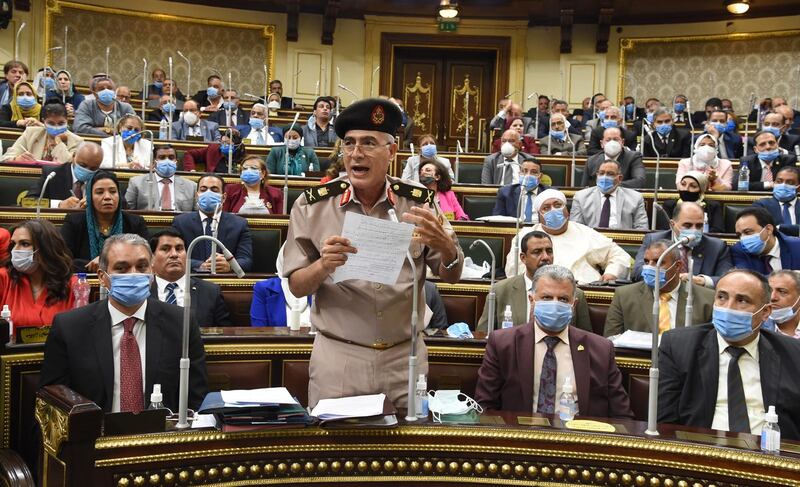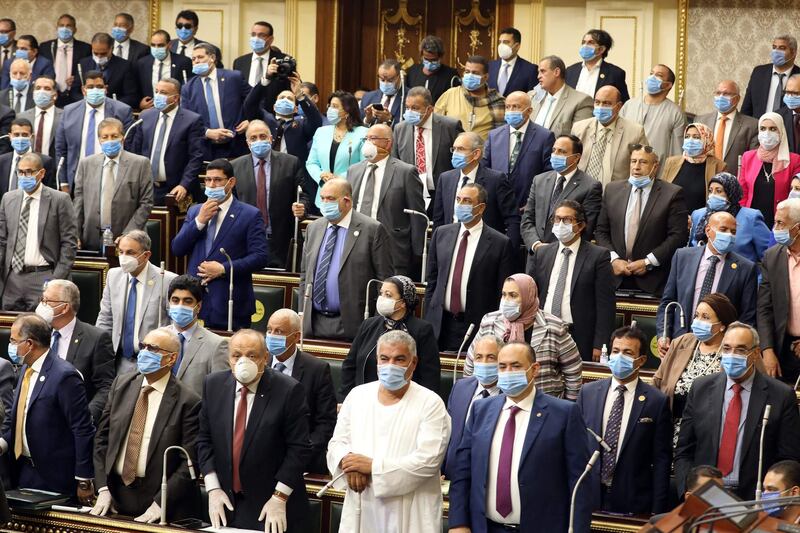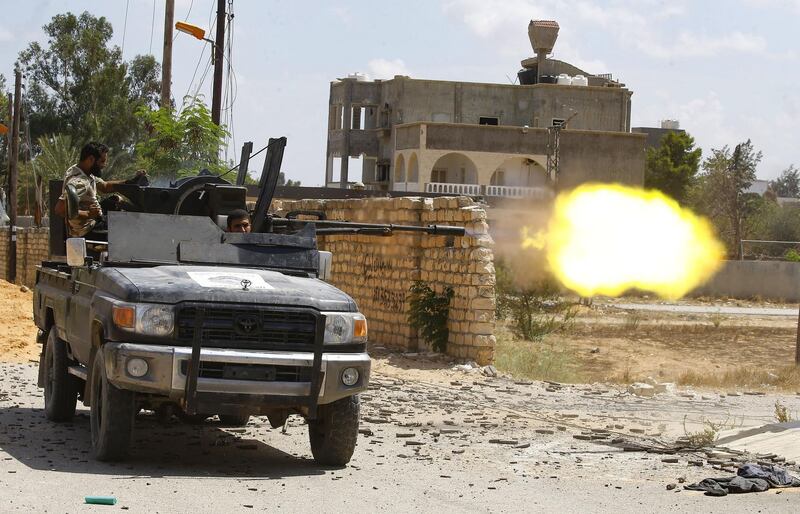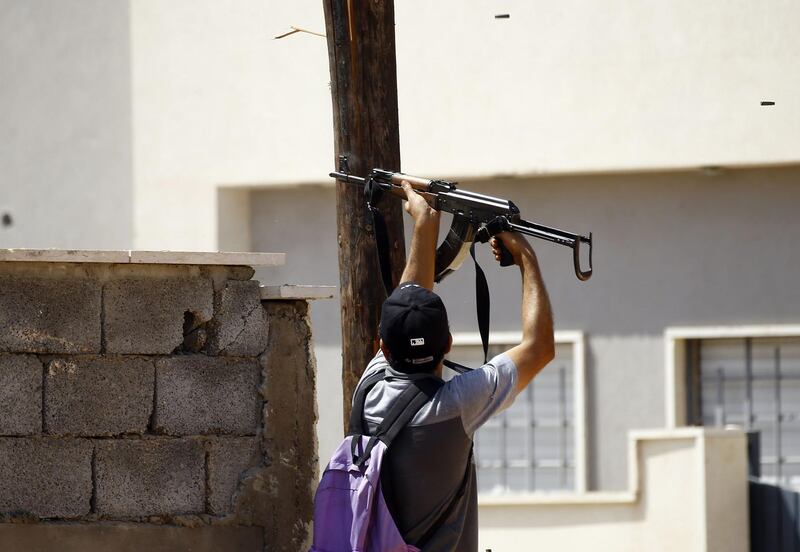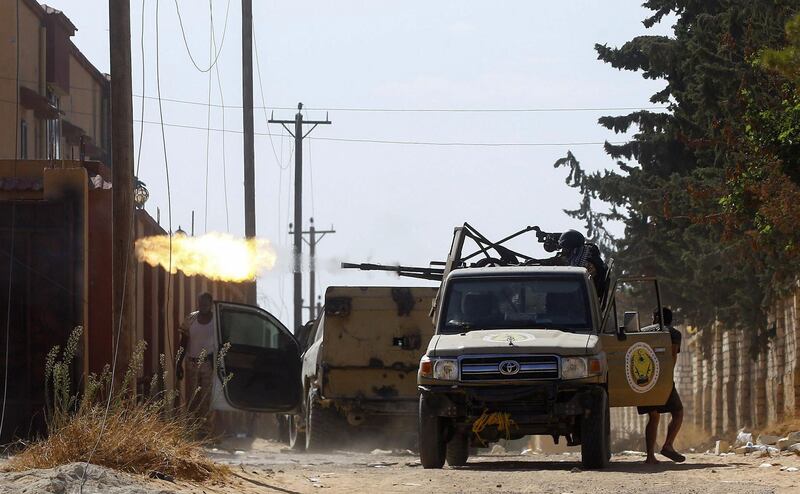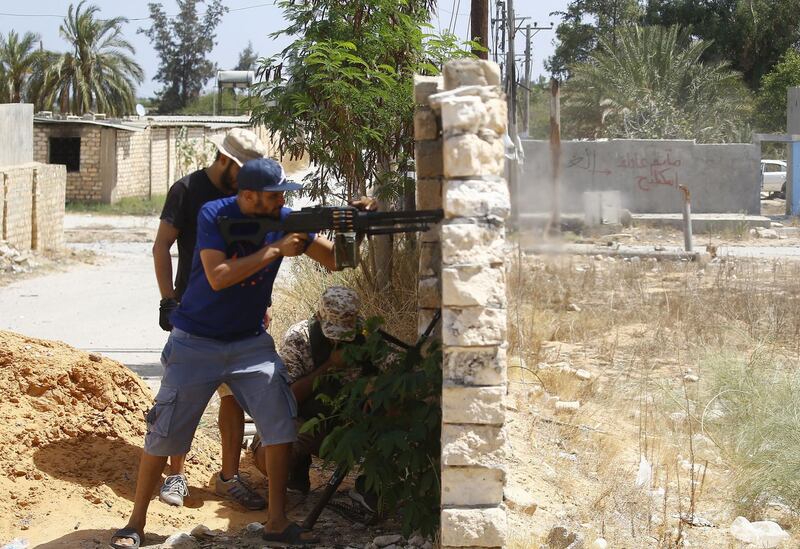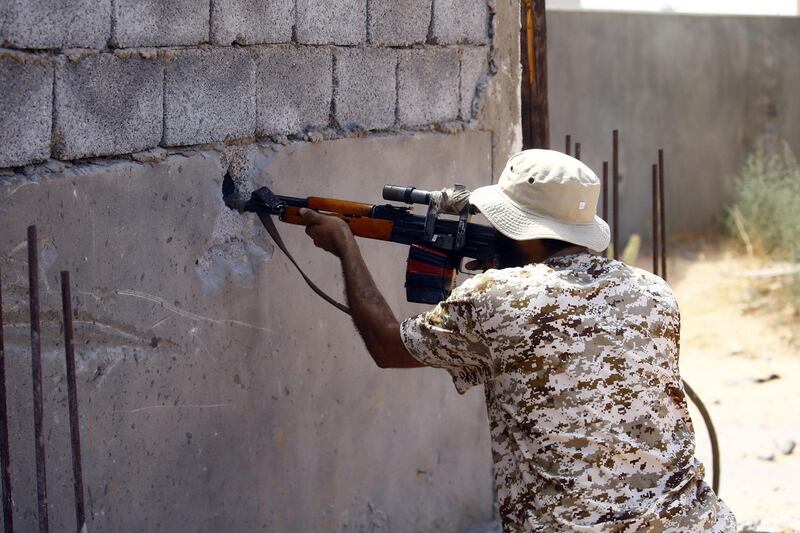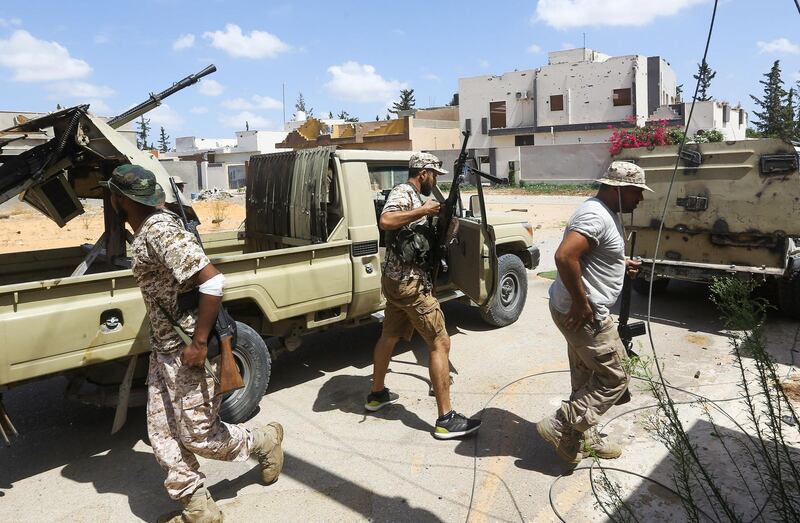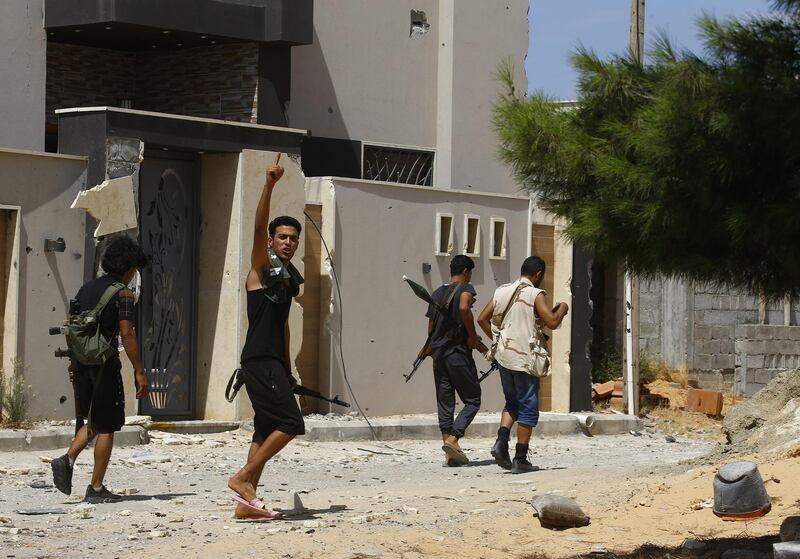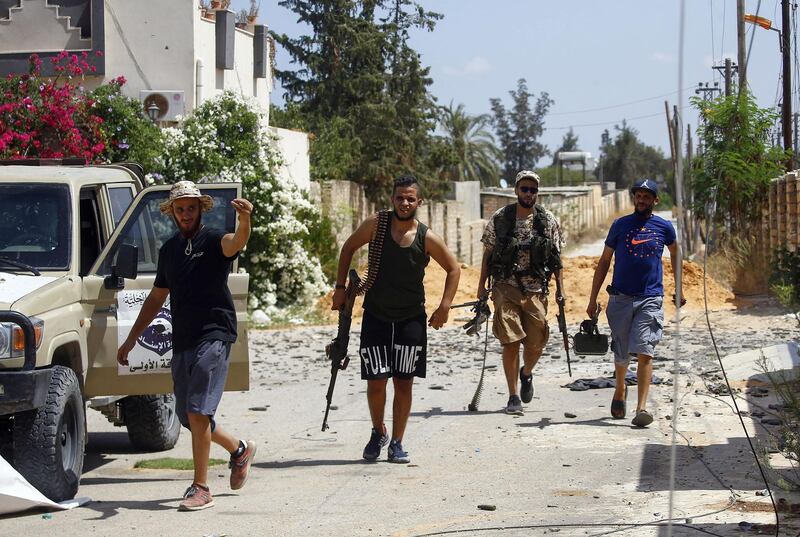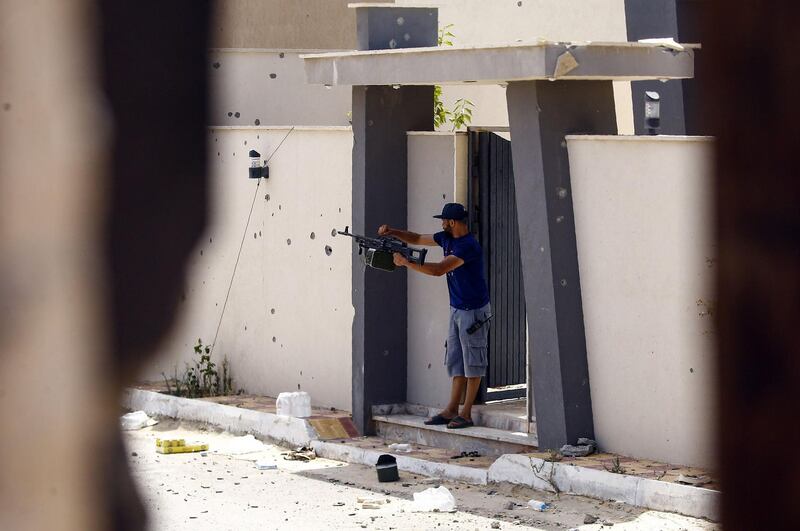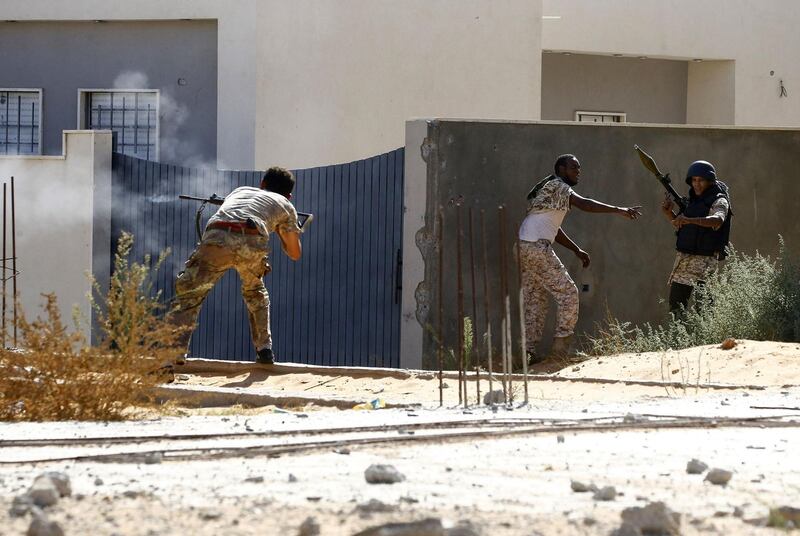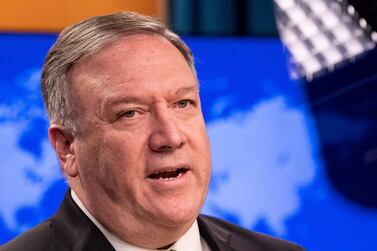Egypt’s Parliament yesterday voted to authorise sending troops abroad in defence of national security as concerns over neighbouring Libya intensify.
The 596-seat chamber did not mention Libya specifically but left little doubt that was the intended country.
Cairo is concerned about militants from Libya crossing its borders and posing a threat to its security.
Turkey has a history of supporting militants in Libya and has sent troops and mercenaries to back the Government of National Accord in Tripoli.
Parliament said the 510 MPs present voted unanimously in support of the resolution.
"The armed forces and its leadership have a legal and constitutional licence to decide the time and place for their response against these threats," the statement said.
It referred to "criminal and armed militias and foreign terrorist elements".
The statement said the authorisation to send troops abroad would be valid until their mission is completed.
The session was held behind closed doors.
Speaker Ali Abdel Aal, a staunch government supporter, asked media representatives to leave the chamber before the session began late afternoon.
MPs were told they could not leave the chamber before the vote, which was necessary under Egypt’s constitution that prohibits sending troops abroad without the house’s approval.
Egypt and Turkey have been at odds for years, with Cairo accusing the Nato member of destabilising the region. They support rival parties in the Libyan conflict.
Minutes before the day’s session, US President Donald Trump spoke to Egyptian leader Abdel Fattah El Sisi by phone.
The Egyptian presidency said Mr Trump asked that no action be taken to escalate the situation in Libya and that efforts must continue to uphold a fragile ceasefire.
“The two leaders affirmed the need for immediate de-escalation in Libya, including through a ceasefire and progress on economic and political negotiations,” the White House said.
It said Mr Trump also told French President Emmanuel Macron that the conflict “has been exacerbated by the presence of foreign forces and arms", the White House said.
If the Egyptian military moved into Libya, it would be the first time that Cairo sent combat troops abroad since it took part in the 1991 liberation of Kuwait by a US-led coalition.
The previous time was in the 1960s when Egyptian troops fought on the side of republicans in Yemen’s civil war, a conflict that depleted the military and set the stage for its defeat in the 1967 Arab-Israeli war.
Last week the House of Representatives in Libya’s eastern region, which Cairo recognises as the country’s only legitimate power, invited military intervention if Cairo and the chamber agreed such action was needed.
On Sunday, Egypt’s National Security Council convened in a meeting chaired by Mr El Sisi and attended by Defence Minister Mohamed Zaki, top military commanders and others.
The council reviewed the situation in Libya and the dispute with Ethiopia over a dam it is ready to fill on the Nile.
Libya has descended into deadly chaos after a 2011 uprising that toppled and killed longtime dictator Muammar Qaddafi.
The east and west of the country are ruled by rival administrations backed by competing forces.
Field Marshal Khalifa Haftar, the leader of the Libyan National Army who is supported by Egypt and others, marched on Tripoli last year to topple the GNA and the militants it employs to defend it.
But the territorial gains won by the LNA early in its 15-month campaign were lost after Turkey sent thousands of Syrian mercenaries, armed drones and military advisers to aid the Tripoli government.
The GNA is now determined to retake the coastal city of Sirte, which Mr El Sisi said was a “red line” for Egypt.
Cairo now has the political mandate and legitimacy it needs to enter Libya and prevent Turkey and its allied militias from advancing eastward towards Libya’s oil region.
Mr El Sisi, a former general ran for president in 2014. He won a second term in 2018 and, after constitutional changes last year, can stay in office until 2030 if he chooses to seek re-election in 2024.
Last week he said the Egyptian armed forces had the capability to go into Libya and swiftly change the course of the war, and that his country had the strongest military in the region.
Mr El Sisi has spent billions of dollars on weapons since taking office, including submarines, high-seas troop carriers equipped with assault helicopters and the latest jet fighters.
His security forces have for years been battling militants in the Sinai.
Mr El Sisi said the presence of armed extremists in Libya was a threat to Egypt’s national security and his country would not stand idly by if they moved closer to its porous desert border with Libya.
Egyptian security forces and minority Christians travelling to remote desert monasteries have been targets in recent years for deadly assaults that Cairo blamed on militants based in Libya.
This prompted Cairo to invest heavily to monitor its 1,200-kilometre border with its western neighbour.
But analysts warn that a protracted and unwinnable war in Libya could be in store for the Egyptians if they moved against the Turkish-backed forces loyal to the GNA.
They said Egypt’s military intervention could tempt Turkey to expand its foothold in Libya and persuade Qatar, another enemy of Cairo, to spend more on bankrolling Cairo’s foes there.
But they also said Egyptian troops could cross into Libya, fan out in the eastern region and protect the oilfields without advancing to the front lines around the coastal city of Sirte, and rely on air power to pin down enemy forces.
Some commentators are advising caution and patience while some of the media urge Mr El Sisi to enter Libya and strike the Ethiopian dam before it is filled.
"The calls to go to war in Libya must be toned down and we must stop pressuring the decision-maker," analyst Suleiman Goudah wrote in the daily Masry El Youm at the weekend.
"Those behind these calls must realise that war is generally not a picnic.
“If this applies to us going to war in any direction, it’s much more apt applying to a war in Libya."
Mr Goudah said Mr El Sisi's red line, stretching between Sirte and the oasis town of Jufra, was 1,000km west of the Egyptian border.
